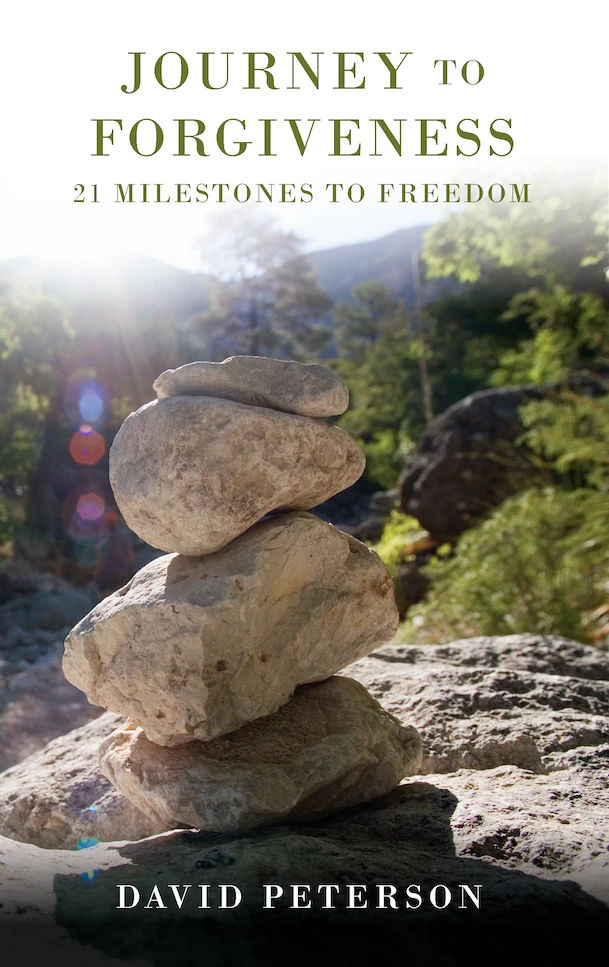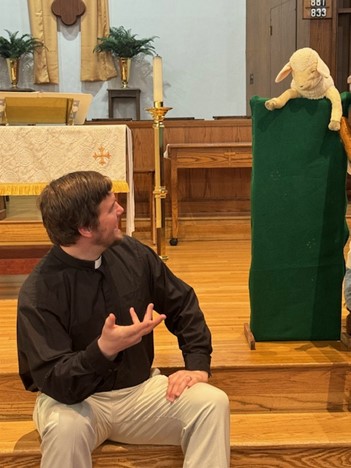How DEIA, Anti-Racism and CRT Are Becoming the New Gospel in the ELCA
Any meaningful discussion of these modern-day heresies absolutely must begin and end with scripture. DEIA (Diversity, Equity, Inclusion and now Accessibility – other letters are soon to come, I’m sure, as other intersectional groups demand recognition and victimhood status), Anti-Racism (which seems to actually be sort of reverse racism), and CRT (Critical Race Theory), which defines everything and everyone through the lens of racism. They ultimately divide the world into victims and victimizers, and if you’re deemed a victimizer, you must be destroyed at any cost.
Although these ideologies are often dressed up in biblical/religious terms to sound Christian enough to mislead people, they actually are in direct opposition to scriptural admonitions, and in fact seek by their very nature to undermine the authority of Scripture and replace the Good News of the Gospel of God’s love poured out for us through Jesus’ sacrifice for us on the cross, with something truly vile and destructive. In order for these progressive idolatries (more on that term later) to be accomplished, people have to be convinced that the Bible is wrong and not to be trusted in matters of faith and life, that faith only matters if it is filtered through the DEIA, CRT and anti-racist ideologies – nothing else will be tolerated!
As background and foundation for this article, I ask that the following biblical references be kept in mind and heart. The biblical language is clear and must not be allowed to be subverted by the typical “theological word salad,” manipulative gaslighting tactics and fear mongering (“If you don’t agree with us, you’re a racist, homophobic, transphobic, or whatever ad hominem attack they can think of to cower people into silence) so often used by activists and race-baiters to stifle debate and confuse those who are not well-grounded in scripture and the Lutheran Confessions.
Scripture for Consideration
Galatians 3:23-29, especially verse 28: “There is no longer Jew or Greek, there is no longer slave or free, there is no longer male and female; for all of you are one in Christ Jesus.” (NRSV)
Colossians 3:5-11, especially vs. 11: “In that renewal there is no longer Greek and Jew, circumcised and uncircumcised, barbarian, Scythian, slave and free; but Christ is all and in all!” (NRSV)
1 Corinthians 12:12-13: “12 For just as the body is one and has many members, and all the members of the body, though many, are one body, so it is with Christ. 13 For in the one Spirit we were all baptized into one body—Jews or Greeks, slaves or free—and we were all made to drink of one Spirit.” (NRSV)
Rom 8:1-8, especially 8:1 – There is therefore now no condemnation for those who are in Christ Jesus. (NRSV)
The DEIA, Anti-Racism and CRT Replacement Gospel
One of the great gifts that Christianity has given to the world has been the cure for the destructive problem of “tribalism.” For the purposes of this article, I would define tribalism as the pitting of one tribe, nation, group or even gender and intersectional identity against another. When Christianity began to spread, something amazing happened: tribalism no longer defined the lives of people of faith, and that change affected their communities. A new possibility for communal living began to emerge because people believed in, as THE defining characteristic of their lives, salvation and forgiveness through faith in Jesus’ life, death and resurrection for them. As people came to faith, the tribalism that had separated them and pitted them against one another began to fade away. The rebirth that comes through baptism and faith was incompatible with the old waring cycles of death and destruction, and light began to shine in the darkness as the Kingdom of God began to emerge. Although we begin to see changes coming in cultures and even governments because of the presence of those changed by faith, darkness, however, will always be a part of this broken and sinful world.
Despite all the happy rhetoric surrounding them, DEIA, CRT, anti-racism, and the victim-victimizer way of categorizing people actually turn people against one another, bringing back the tribalism that fell to the power of forgiveness, becoming ultimately profoundly racist and demonic.
Why? Because it skips the whole life-changing-relationship with Jesus part that CAUSED the changes and tries to go right to the end result. But since scripture and true faith are bypassed, the end result actually becomes the activists’ Utopian fantasy of a perfect world. This is where my use of the term idolatry comes in. They worship this vision and will destroy anything in the way of accomplishing it. Their goal, sadly, is a reflection of their own brokenness(as all idols are), and therefore HAS to accommodate virtually every kind of behavior forbidden by scripture (just keep adding more letters to the abbreviations!). God and scripture are, other than the occasional out-of-context reference to give some illusion of legitimacy, taken out of the equation completely. The resulting idolatry is then inside-out and backwards (I think the technical term is “bass-ackwards”) from what scripture invites us to experience.
The Commission for a Renewed Lutheran Church
Imagine the horror and embarrassment of ELCA leadership when it was discovered that after 35 years of mandated 10% quotas of people of color and people whose primary language is other than English, the ELCA actually became on average MORE Caucasian, with some figures being quoted as high as 97%!
Imagine the thought processes at work: “What can we do now? How can we FORCE the ELCA to become the church that we want it to be. The ‘racist’ ELCA must be destroyed and rebuilt in our image (but see Genesis 1:21 to see whose image is important!). We’ll call it ‘decolonization’ or ‘deconstruction,’ but we’ve got to completely destroy it. But how can we make the churches go along with all of this? I know! We’ll use guilt to do it! That worked before, right? We’ll throw enough Bible-sounding word salad at them to confuse them, but we’ve got to convince the 97% that THEY are the problem, condemned by God, that they are evil, racist, misogynistic, sexist, and that they are victimizers! THIS is the new gospel. ‘No condemnation in Christ Jesus’? Hah! We’ll HEAP condemnation on them! We’ll minimize Jesus’ death on the cross and salvation through faith in him. We’ll undermine people’s confidence in scripture, the confessions and the creeds, and we’ll guilt them into submission. Then they will actually help us destroy the church! Brilliant! And we’ll promise them a million new members who look just like us! All they have to do is shut up and get out of the way.”
In order to accomplish this on any level, ALL of the institutions of the church must be changed so that DEIA is the unquestioned operating procedure (done!), and they have to infuse DEIA into all of the constitutional documents of Churchwide, synods, and especially churches. Already on the ELCA website is the result of their DEIA audit and recommended changes to all of our constitutions. Being pushed by the Commission for a Renewed Lutheran Church, this represents the reworking of the framework of the ELCA, from top to bottom. Once the DEIA is fully unleashed, nothing can stop it, and I don’t think most of the leadership in the ELCA fully understands what hell they’re about to experience themselves. DEIA demands complete obedience with no tolerance for conservative or dissenting voices. Even bishops will be forced to conform.
The one thing still standing in the way of full domination for DEIA is Bound Conscience. These positions, put in place apparently to gaslight people who disagreed with changes made in 2009, are what gives legal cover to those who would disagree with DEIA, CRT and anti-racism. Oddly, from a conservative and biblical point of view, these clauses are deeply flawed. We would say with Luther, that our consciences are bound to the Word of God. Oddly, that part is never mentioned in the Bound Conscience clauses.
However, when Bound Conscience goes (and it is being actively “reconsidered” now), nothing is left to protect conservative pastors and churches who still dare to disagree, and we will be subject to legal action, discipline and punishment for being racist or any of the usual phobics, and whatever other attacks that would be launched. That, I believe, will happen as soon as DEIA is fully implemented in our constitutional documents. DEIA leaves no room for disagreement. The change will be breathtakingly swift. The United Methodists are now discovering, with the departure of huge numbers of conservative pastors and churches, what happens when the conservative brakes are released. Even progressives there are showing some concern at how quickly their founding documents and positions are being abandoned – with not much of substance being put in their place.
I expect these changes to begin to be implemented at the 2025 Churchwide Assembly. Once DEIA changes are implemented, Bound Conscience will fall. Conservative pastors and churches will no longer be welcome in the ELCA, nor will we be safe.
Pastor Lawrence Becker
Westchester Lutheran Church,
Los Angeles, CA

























































